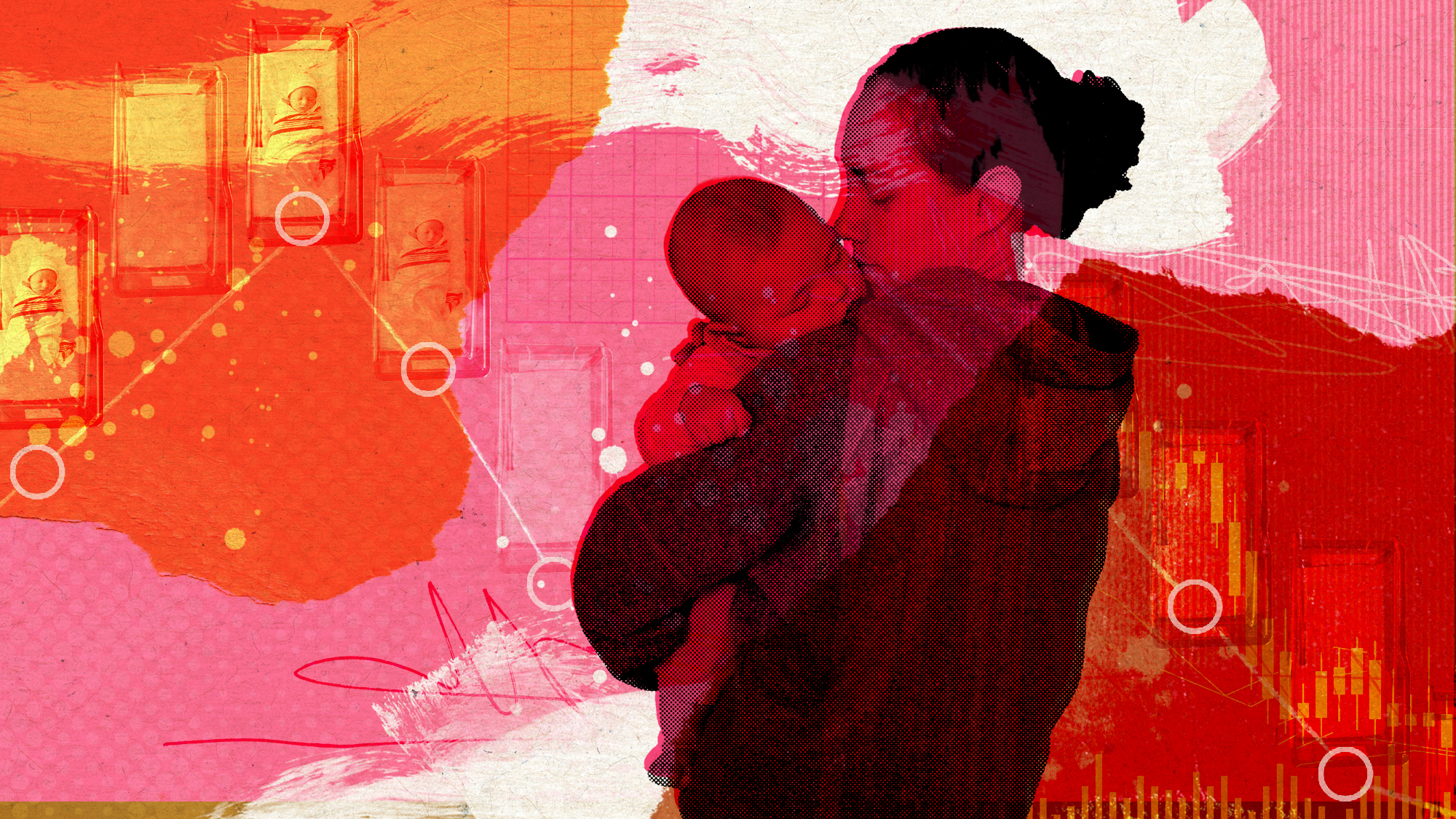Why does the US fertility rate keep dropping?
A population decline can change the landscape of the future


A free daily email with the biggest news stories of the day – and the best features from TheWeek.com
You are now subscribed
Your newsletter sign-up was successful
Data collected by the Centers for Disease Control and Prevention found that in 2023, the U.S. fertility rate dropped 3% from 2022, marking a record low. Americans are currently not having enough children to replace the country's population.
The conversation surrounding the declining birth rate came to a head amid the 2022 overturning of Roe v. Wade and the 2024 presidential election, with figures like Elon Musk warning of the "mass extinction of entire nations." But social and economic factors have increasingly led people to have children later in life or opt out of having them altogether.
Why are US fertility rates declining?
Falling fertility rates are a reflection of the social and economic state of the country. Many more women are now educated, which means they are able to support themselves and can choose to get married later. "People are waiting to have children. And on average, when people wait longer to have children, they end up having fewer children," Sarah Hayford, the director of the Institute for Population Research at The Ohio State University, said to CNN. "I think there's also greater social acceptance of not having children or having a smaller family. So as that has become more acceptable, people are more carefully weighing their decision to become parents."
The Week
Escape your echo chamber. Get the facts behind the news, plus analysis from multiple perspectives.

Sign up for The Week's Free Newsletters
From our morning news briefing to a weekly Good News Newsletter, get the best of The Week delivered directly to your inbox.
From our morning news briefing to a weekly Good News Newsletter, get the best of The Week delivered directly to your inbox.
Many women have also become concerned about their access to reproductive healthcare, including abortions, following the overturning of Roe v. Wade. "The public seems to have adjusted its fertility behavior, in recognition of the transformed scene," said a 2024 analysis by the Institute for Research on Women, Gender & Sexuality. This adjustment includes "greater vigilance around birth control and travel across state lines to access abortion care," as well as "increases in more permanent contraception procedures, like tubal ligation," said Slate.
In addition, "some experts also report that lower fertility rates are related to higher rates of obesity and increasing urbanization, which leads to higher housing costs," said News-Press Now. The general higher cost of living is dissuading many people from having children.
What has been the political impact of lower fertility rates?
The declining birth rate took a front seat during the 2024 presidential election. "A small but dedicated cadre of advocates has pushed the topic to the forefront of conservative policy agendas in Washington and Silicon Valley, warning that U.S. economic growth and the solvency of Social Security depend on lifting fertility from its record-low levels," said The Wall Street Journal. Some Republicans have discussed a national abortion ban and potentially limiting birth control access. Both Democrats and Republicans also floated the idea of child tax credits to encourage people to have children.
During President-elect Donald Trump's campaign, Vice President-elect JD Vance criticized "childless cat ladies," and pointed specifically to Democrats having fewer children. "Republican fertility will rise relative to Democrats, with an increase in the number of babies in Republican families showing up roughly 9–12 months from now," Gordon Dahl, an economist and a professor at the University of California San Diego," said to Slate following Trump's win. However, there has been a growing divide in political affiliation between men and women.
A free daily email with the biggest news stories of the day – and the best features from TheWeek.com
What will the future look like?
The decreasing birth rate could have massive ramifications for the future. "A healthy birth rate is crucial to ensuring enough workers exist to keep the engines of the economy strong and provide care for older generations," said New-Press Now. In the U.S., a low birth rate could affect Social Security and require people to work for longer in the future. The problem is also not exclusive to the States, as a large number of other countries are either experiencing population decline or are expected to.
While changes in social policy, like improving healthcare access and implementing paid maternity leave, could potentially help the fertility rate, immigration is likely to become a necessity. "While many other developed nations are beginning to battle the demographic effects of a shrinking and aging population," said Politico, "the U.S. has been spared so far because of the role new immigrants play in keeping the population at steady state levels, or in some projections, growing, even as the number of native-born births falls." Of course, if Trump’s current plans for mass deportations pan out, there may be fewer immigrants in the near future.
Devika Rao has worked as a staff writer at The Week since 2022, covering science, the environment, climate and business. She previously worked as a policy associate for a nonprofit organization advocating for environmental action from a business perspective.
-
 James Van Der Beek obituary: fresh-faced Dawson’s Creek star
James Van Der Beek obituary: fresh-faced Dawson’s Creek starIn The Spotlight Van Der Beek fronted one of the most successful teen dramas of the 90s – but his Dawson fame proved a double-edged sword
-
 Is Andrew’s arrest the end for the monarchy?
Is Andrew’s arrest the end for the monarchy?Today's Big Question The King has distanced the Royal Family from his disgraced brother but a ‘fit of revolutionary disgust’ could still wipe them out
-
 Quiz of The Week: 14 – 20 February
Quiz of The Week: 14 – 20 FebruaryQuiz Have you been paying attention to The Week’s news?
-
 NASA’s lunar rocket is surrounded by safety concerns
NASA’s lunar rocket is surrounded by safety concernsThe Explainer The agency hopes to launch a new mission to the moon in the coming months
-
 How Mars influences Earth’s climate
How Mars influences Earth’s climateThe explainer A pull in the right direction
-
 How climate change is affecting Christmas
How climate change is affecting ChristmasThe Explainer There may be a slim chance of future white Christmases
-
 Africa could become the next frontier for space programs
Africa could become the next frontier for space programsThe Explainer China and the US are both working on space applications for Africa
-
 NASA is moving away from tracking climate change
NASA is moving away from tracking climate changeThe Explainer Climate missions could be going dark
-
 A rat infestation is spelling trouble for the almond industry
A rat infestation is spelling trouble for the almond industryThe Explainer The infestation has affected at least 100,000 acres in California
-
 What would happen to Earth if humans went extinct?
What would happen to Earth if humans went extinct?The Explainer Human extinction could potentially give rise to new species and climates
-
 How to see the Lyrid meteor shower
How to see the Lyrid meteor showerThe explainer A nice time to look to the skies
